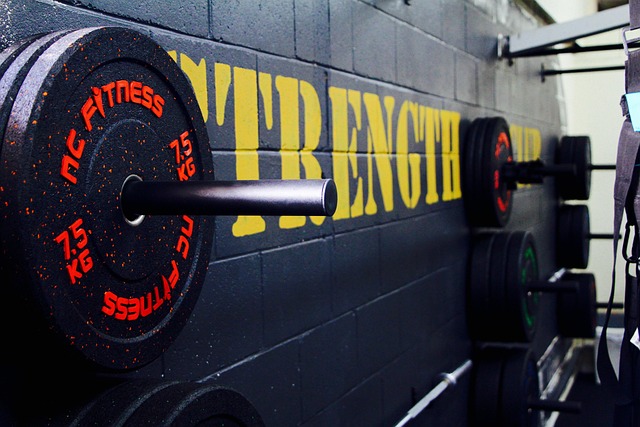Decluttering is more than just tidying up your physical space—it’s about creating a healthier, more intentional lifestyle. A cluttered environment can lead to stress, distraction, and even physical health issues, while an organized space fosters clarity, productivity, and overall well-being. Whether you’re overwhelmed by piles of belongings, digital chaos, or mental clutter, taking steps to simplify your life can have profound benefits. This article provides practical strategies to declutter your surroundings and cultivate a healthier, more harmonious environment.
1. Start Small and Set Clear Goals
Decluttering can feel daunting, especially if you’re surrounded by years of accumulated items. Breaking the process into manageable steps makes it less overwhelming.
- Focus on One Area at a Time: Begin with a single drawer, shelf, or room rather than tackling everything at once. Completing small sections builds momentum and prevents burnout.
- Define Your Purpose: Ask yourself why you want to declutter. Are you seeking more peace, better focus, or improved health? Having a clear goal will keep you motivated.
- Set Realistic Expectations: Understand that decluttering is a gradual process. Celebrate each milestone, no matter how minor.
2. Use the “Four-Box Method”
A simple yet effective way to categorize your belongings is the four-box method: Keep, Donate/Sell, Trash, and Relocate.
- Keep: Only retain items that serve a purpose, bring joy, or align with your goals.
- Donate/Sell: Give away or sell things you no longer need but are still in good condition. This reduces waste and helps others.
- Trash: Dispose of broken, expired, or unusable items responsibly.
- Relocate: Move misplaced items to their proper places, ensuring everything has a designated home.
This approach ensures every item is evaluated thoughtfully and dealt with appropriately.
3. Adopt a Minimalist Mindset
Minimalism isn’t about living with nothing—it’s about prioritizing what truly matters and eliminating excess.
- Apply the 80/20 Rule: Recognize that 80% of your time is spent using only 20% of your possessions. Let go of items that fall outside this core group.
- Ask Key Questions: Before keeping something, ask:
- Do I use this regularly?
- Does it add value to my life?
- Would I buy it again today?
- Practice Gratitude: Appreciate what you already have instead of accumulating more. This mindset reduces the urge to overconsume.
4. Tackle Digital Clutter
In today’s digital age, virtual clutter can be just as overwhelming as physical clutter.
- Organize Files and Folders: Delete unnecessary files, organize documents into clearly labeled folders, and back up important data to the cloud or external drives.
- Unsubscribe and Unfollow: Remove emails from subscriptions you don’t read and unfollow social media accounts that drain your energy or distract you.
- Limit Screen Time: Set boundaries for device usage to reduce digital overwhelm and create space for meaningful activities.
5. Create Functional Spaces
An organized environment supports efficiency and relaxation. Designate specific areas for different purposes to maximize functionality.
- Kitchen: Keep countertops clear except for frequently used items like a coffee maker or knife block. Store rarely used appliances out of sight.
- Bedroom: Make your bedroom a sanctuary for rest. Remove work-related materials, electronics, and clutter to promote better sleep.
- Workspace: Maintain a clean desk with only essential tools visible. Use organizers, shelves, or drawers to store supplies neatly.
6. Establish Daily Habits
Preventing future clutter requires consistent effort. Incorporate these habits into your routine:
- One In, One Out Rule: For every new item you bring into your home, remove an old one. This keeps possessions in check.
- Daily Reset: Spend 10-15 minutes each evening tidying up high-traffic areas, such as the kitchen, living room, or entryway.
- Regular Reviews: Periodically reassess your belongings to ensure they still align with your needs and values.
7. Address Mental and Emotional Clutter
Physical organization often mirrors mental and emotional states. Reducing internal clutter enhances focus, decision-making, and overall well-being.
- Journal Your Thoughts: Writing down worries, goals, or reflections can help clear your mind and prioritize what’s important.
- Practice Mindfulness: Meditation, deep breathing, or yoga can calm racing thoughts and improve mental clarity.
- Let Go of Toxic Relationships: Surround yourself with supportive, positive people who uplift and inspire you.
8. Improve Air Quality and Lighting
A healthy environment goes beyond organization—it includes factors like air quality and lighting.
- Add Houseplants: Plants like snake plants, pothos, and peace lilies purify the air and boost mood.
- Ventilate Regularly: Open windows to allow fresh air circulation, reducing allergens and stale odors.
- Maximize Natural Light: Use sheer curtains or rearrange furniture to let sunlight in, which improves mood and energy levels.
9. Simplify Your Schedule
Overcommitment contributes to stress and disorganization. Streamline your calendar to create balance.
- Prioritize Tasks: Focus on activities that align with your values and goals. Learn to say “no” to nonessential obligations.
- Batch Similar Tasks: Group errands, emails, or chores together to save time and increase efficiency.
- Build in Downtime: Schedule breaks and leisure activities to recharge and prevent burnout.
10. Donate or Repurpose Unused Items
Instead of throwing away usable items, find creative ways to give them new life.
- Host a Garage Sale: Sell gently used items to earn extra cash while clearing space.
- Upcycle Creatively: Turn old jars into storage containers, transform worn clothes into cleaning rags, or repurpose furniture for new uses.
- Support Charitable Causes: Donate books, clothing, and household goods to organizations that support those in need.
11. Maintain Accountability
Staying organized requires ongoing commitment. Here’s how to stay accountable:
- Enlist Help: Involve family members or roommates in decluttering efforts to share responsibility.
- Track Progress: Take before-and-after photos to see how far you’ve come and stay motivated.
- Reward Yourself: Treat yourself after completing major decluttering tasks, whether it’s enjoying a favorite meal or buying something meaningful (but not excessive).
